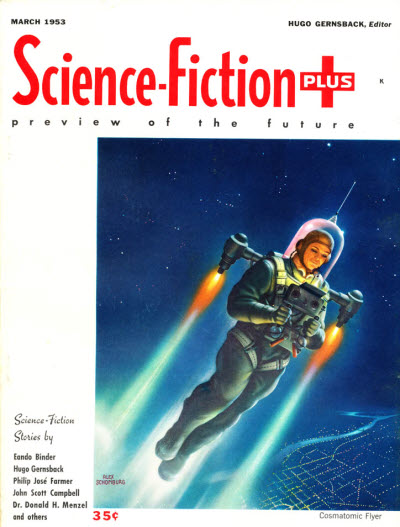Utopianism, Scientism and the Golden Age of Science Fiction
A. E. Van Vogt creates a future science of "nexialism," which rolled all of the sciences into one, threw in hypnotism and other persuasion techniques, and allowed practitioners great control of social situations.
Isaac Asimov, in his Foundation series, saw a field called psychohistory that could be used to predict and control social phenomena.
Robert Heinlein and Arthur C. Clarke also had utopian themes in their work, in which the ordinary trials and tribulations of social life are somehow overcome. And leading science fiction editor John W. Campbell had a great interest in "fringe psychologies."
But these men had a colleague who went further: L. Ron Hubbard, the founder of Dianetics and Scientology. (Campbell, Van Vogt and another science fiction writer, Theodore Sturgeon, were all involved in founding Dianetics.)
I note this just because I find it interesting that Hubbard was basically trying to put into practice what his fellow writers merely had speculated about.

If you write sci-fi, will the characters in your writing live in a simulation?
ReplyDelete...
Is this what Indra is about? Are you secretly planning to put into practice what other writers are merely speculating about? Cheeky devil!
"I note this just because I find it interesting that Hubbard was basically trying to put into practice what his fellow writers merely had speculated about."
ReplyDeleteAnd it worked! It created the most successful cult in modern history. Did you know that it was responsible for one of the largest infiltrations of the US government in history?
You were once a Scientologist, correct?
ReplyDelete